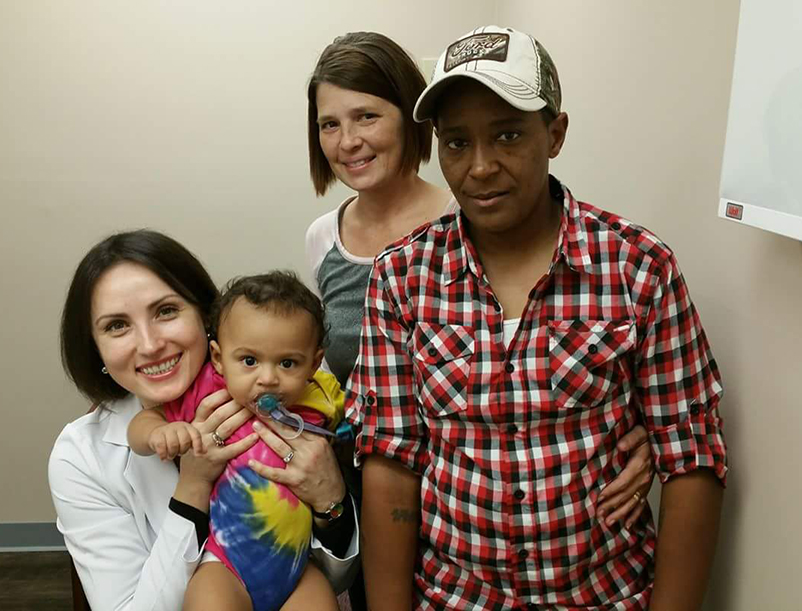Step 1: Ovarian Stimulation
Ovarian stimulation and monitoring is the first step of the in vitro fertilization
(IVF) process leading to multiple egg availability at the retrieval step. Retrieving
more than one egg allows for multiple embryos, which offers patients optimal efficiency
during their IVF treatment.
Ovulation induction medications (FSH, LH and HCG) coax the ovaries to produce more
than one egg to the point of maturity. Hormone levels reach much higher than normal
values. This may cause side effects, so we carefully monitor your response to these
medications.
This monitoring also allows your physician to determine when the eggs are ready for
the next stage, oocyte (egg) retrieval. This includes frequent blood drawing for hormone
level monitoring and use of transvaginal ultrasound to track follicular growth. This
monitoring is performed as frequently as every other day for three to five visits,
until egg retrieval takes place.
Ovarian stimulation isn't risk free. Careful monitoring and adherence to the provider's
instructions and recommendations are key to the safety and success of IVF treatment.
Step 2: Egg Retrieval
Egg retrieval is an outpatient procedure performed under intravenous anesesthia and
carefully monitored by an anesthestist. It involves egg retrieval under continuous
transvaginal ultrasound guidance. The follicular fluid with the egg(s) is collected
in a special tube then assessed by an embryologist under the microscope.
Step 3: Egg Insemination with Sperm
After egg retrieval, insemination with sperm is performed to fertilize eggs. The egg
insemination depends on quality of sperm and commonly require an additional step,
intra-cytoplasmic sperm injection (ICSI). We usually obtain a semen sample from the
partner on the day of egg retrieval. After the semen sample is produced, the sperm
will be prepared for inseminating the collected eggs.
Twenty-four hours after egg insemination, we evaluate eggs for fertilization and notify
patients of the results.
Step 4: Incubation of Embryos
Fertilized eggs become embryos, which incubate in our cutting-edge IVF laboratory
under continuous monitoring. Patients are updated on the progress of their embryo
growth along the way, as well as on their embryo transfer date. Most of our embryo
transfers take place after five days of incubation, though, occasionally day two or
three transfers may take place.
Step 5: Embryo Transfer and After Care
Embryo transfer is performed through a small tube (catheter) containing embryo(s)
to the thickest part of the uterine lining. This procedure is performed under continuous
transabdominal ultrasound guidance for precise placement of embryo(s). Both partners
are decide on the number of embryos to transfer and observe the procedure in real
time. We routinely provide couples with a photo of the transferred embryo(s).
The number of embryos transferred depends on individual circumstances of the couple,
and you, your physicians and the embryologist will make this decision collectively.
Couples going through therapy must choose and formalize their choice for handling
of any remaining embryos by indicating one of the following options:
- Freezing (cryopreservation) of remaining embryos for use by the couple in future treatment
cycles;
- Anonymously donating the embryos for use by another infertile couple(s) if the donating
couple and the donated embryos meet the screening criteria (you would not receive
any money for this donation, nor would they be sold); or
- Allowing the embryos to develop in the laboratory until they perish, at which time
they would be disposed of in a manner consistent with professional ethical standards
and applicable legal requirements (this usually occurs within 6-8 days after egg collection).
A routine administration of progesterone and estrogen after the transfer ensures the
success of IVF. The dosage and administration of these hormones may vary and are carefully
outlined in couples' IVF treatment plan. These hormones are usually continued until
10 to 11 weeks of pregnancy, at which point most couples are transferred to their
obstetricians for further pregnancy care.


